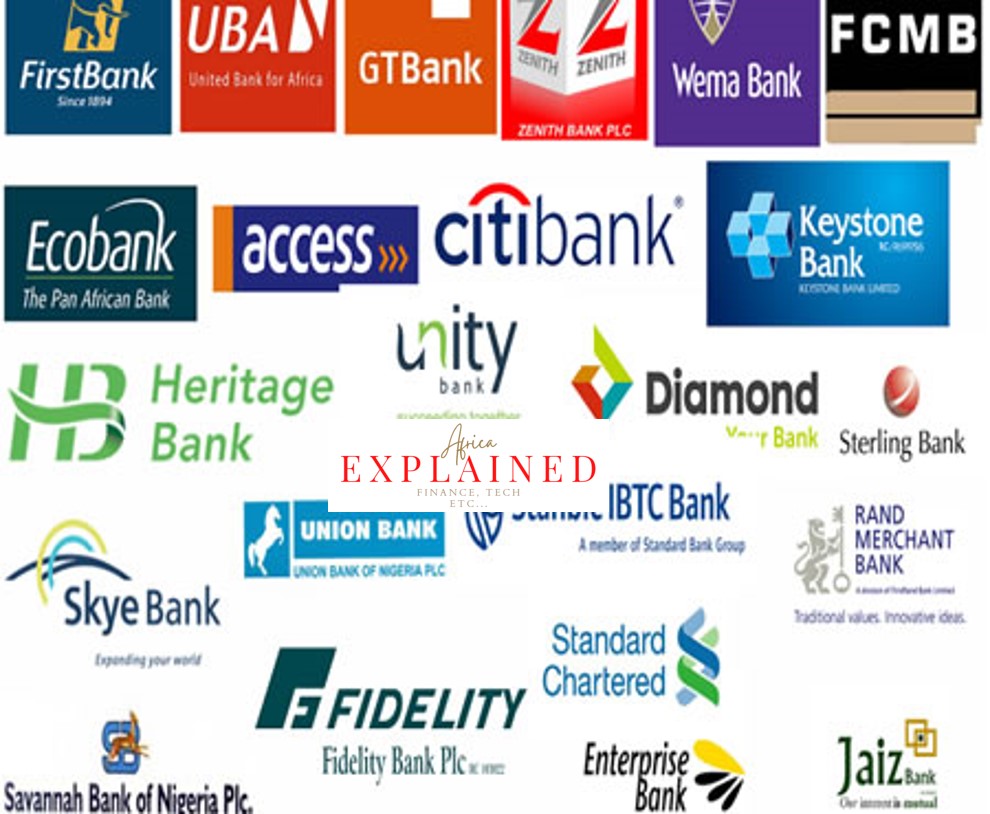
In Nigeria, the age-old practice of visiting a traditional bank for a loan is now being challenged by the rise of loan apps. With just a few taps on your smartphone, you can have access to funds in a matter of minutes, without the need for paperwork or long queues. But does this mean traditional bank loans are now obsolete? Which one is better for Nigerians in today’s fast-paced world? In this blog post, we’ll dive deep into the pros and cons of loan apps versus traditional bank loans, and explore why this decision could make or break your financial future. So, whether you’re looking to start a business, pay for tuition, or consolidate debt, this is one debate you won’t want to miss!
–AfricaExplained.com.ng
Money borrowing has become an inevitable part of life for many Nigerians. Whether it’s for personal or business needs, individuals often turn to either loan apps or traditional bank loans. But, which one is better? While the answer may seem obvious, the reality is far more complex. In this blog post, we’ll dive into the pros and cons of both options and explore some unique perspectives that may challenge your preconceptions about borrowing money. Are you ready to explore the intricacies of loan apps and traditional bank loans in Nigeria? Let’s get started.
In Nigeria, obtaining a loan is an essential financial decision that many individuals and businesses often consider. With the rise of technology, there are now two main options for obtaining loans: loan apps and traditional bank loans. This blog post aims to provide a comprehensive comparison of the two loan options and assist readers in making informed decisions.

Definition of loan app and traditional bank loans
A loan app is a mobile application that enables users to obtain loans conveniently and easily using their smartphones. Traditional bank loans, on the other hand, are loans that are offered by financial institutions, and require individuals to visit bank branches and undergo a rigorous application process.
The purpose of this blog post is to help Nigerians understand the pros and cons of loan apps and traditional bank loans. We will compare the two loan options in terms of interest rates, loan amounts, processing time, security measures, and convenience. We will also look at the factors to consider when choosing between the two loan options.
Loan app
Advantages of using loan apps:
- Convenience and accessibility
Loan apps are easily accessible and available 24/7. They can be downloaded on smartphones and users can apply for loans from anywhere and at any time.
- Speed of processing
Loan apps have fast processing times, and loans can be approved within minutes or hours. This makes them an ideal option for individuals who need quick loans.
- Minimal paperwork
Loan apps require minimal paperwork, and users can complete the application process within a few minutes by providing basic information such as their name, address, and bank details.
- No collateral required
Loan apps do not require collateral, which makes them an ideal option for individuals who do not have assets to pledge as collateral.
Disadvantages of using loan apps:
- High interest rates
Loan apps often charge high-interest rates, which can be as high as 30% per month. This can make loan repayment difficult, especially for individuals with low income.
- Limited loan amounts
Loan apps offer limited loan amounts, usually ranging from ₦5,000 to ₦500,000, which may not be sufficient for businesses or individuals who need larger loans.
- Potential for fraudulent apps
There is a risk of fraudulent loan apps that may steal personal and financial information from users.
- No personal interaction
Loan apps do not provide personal interaction with bank representatives, which may be challenging for individuals who need assistance with the loan application process.

Traditional bank loans
Advantages of using traditional bank loans:
- Lower interest rates
Traditional bank loans offer lower interest rates than loan apps, making loan repayment more manageable.
- Larger loan amounts
Traditional bank loans offer larger loan amounts, which may be more suitable for businesses or individuals who need substantial funding.
- Established reputation and credibility
Traditional banks have established credibility, which may make borrowers feel more secure and confident when taking out a loan.
- Personal interaction with bank representatives
Traditional banks offer personal interaction with bank representatives, which can provide borrowers with assistance and guidance throughout the loan application process.
Disadvantages of using traditional bank loans:
- Tedious application process
Traditional bank loans have a lengthy and tedious application process, which may be time-consuming and frustrating for borrowers.
- Lengthy processing time
Traditional bank loans have a lengthy processing time, and it may take weeks or even months to obtain approval.
- Collateral required
Traditional bank loans require collateral, which may be a challenge for individuals who do not have assets to pledge.
- High credit score requirement
Traditional bank loans require a high credit score, which may make it difficult for individuals with poor credit histories to qualify for a loan. (Banks typically have high credit score requirements for loan applicants.)
Comparison of loan app vs. traditional bank loans in Nigeria
Overview of loan app and traditional bank loan market in Nigeria
In Nigeria, loan apps have become increasingly popular, especially among young people who prefer the convenience and speed of processing. However, traditional banks still dominate the loan market, and many Nigerians still prefer to obtain loans from banks.
Comparison of interest rates and loan amounts
Loan apps often charge high-interest rates, which can range from 10% to 30% per month. Traditional banks, on the other hand, offer lower interest rates, usually ranging from 5% to 10% per annum. Loan apps also offer limited loan amounts, usually ranging from ₦5,000 to ₦500,000, while traditional banks offer larger loan amounts, usually ranging from ₦1 million to ₦10 million.
Comparison of processing time and paperwork requirements
Loan apps have fast processing times, and loans can be approved within minutes or hours. They also require minimal paperwork, and users can complete the application process within a few minutes. Traditional bank loans, on the other hand, have a lengthy processing time, and it may take weeks or even months to obtain approval. They also require extensive paperwork, and borrowers need to provide a lot of information and documents.
Comparison of security measures and fraud prevention
Loan apps may have a higher risk of fraud and identity theft, as there are many fraudulent loan apps available in the market. Traditional banks, on the other hand, have established security measures and fraud prevention measures to protect borrowers from fraud and identity theft.
Factors to consider when choosing between loan app and traditional bank loans
There are some factors to consider when making your choice between loan apps and traditional banks.
Purpose of the loan
The purpose of the loan can influence which loan option is best. For example, if the loan is for a small amount that needs to be repaid quickly, a loan app may be more suitable. If the loan is for a larger amount or a long-term investment, a traditional bank loan may be a better option.
Loan amount needed
Loan apps offer limited loan amounts, while traditional banks offer larger loan amounts. The amount needed can help borrowers determine which loan option is best for them.
Repayment period
Loan apps often offer short repayment periods, usually ranging from 30 to 90 days. Traditional banks, on the other hand, offer longer repayment periods, usually ranging from 1 to 5 years. Borrowers should choose a loan option that offers a repayment period that is suitable for their financial situation.
Interest rate and fees
Borrowers should compare the interest rates and fees of loan apps and traditional banks to determine which loan option is more affordable.
Collateral requirement
Loan apps do not require collateral, while traditional banks require collateral. Borrowers who do not have assets to pledge as collateral may find loan apps more suitable.
Credit score requirement
Traditional banks require a high credit score, while loan apps do not have stringent credit score requirements. Borrowers with poor credit histories may find loan apps more suitable.
Overall convenience and accessibility
Loan apps are more convenient and accessible than traditional banks, as they can be accessed from anywhere and at any time. Traditional banks, on the other hand, offer personal interaction with bank representatives, which may be more suitable for some borrowers.
Conclusion
In conclusion, loan apps and traditional bank loans have their advantages and disadvantages. Loan apps offer convenience and accessibility, but often charge high-interest rates and offer limited loan amounts. Traditional bank loans offer lower interest rates and larger loan amounts, but have a lengthy application process and require collateral. When choosing between loan apps and traditional bank loans, borrowers should consider factors such as the purpose of the loan, loan amount needed, repayment period, interest rate and fees, collateral requirement, credit score requirement, and overall convenience

YJZaqPJyL77
I completely understand with your views on this issue. Thanks for sharing your opinion.